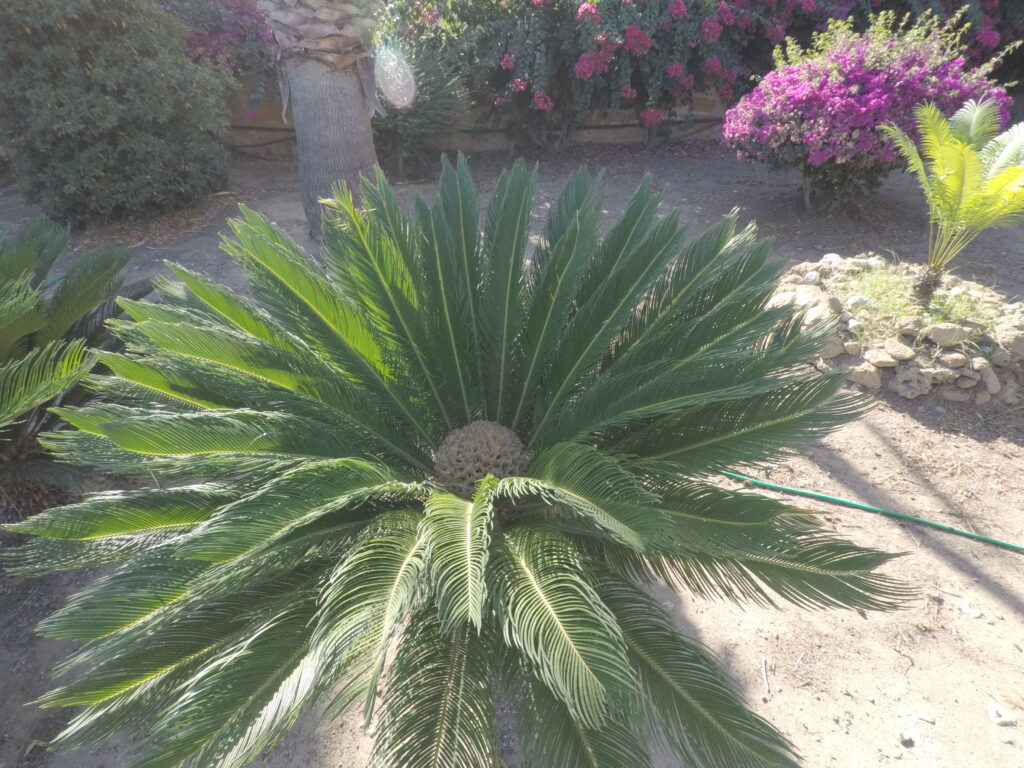Cicas

Cicas
Nome scientifico: Cycas revoluta
Famiglia: Cycadaceae
Origine: Asia orientale, in particolare Giappone
Caratteristiche: Pianta a crescita lenta, con un fusto legnoso e coriaceo e grandi foglie
pennate. Produce un cono centrale che contiene i semi.
Usi: Principalmente ornamentale, apprezzata per il suo aspetto esotico. In alcune culture, i
semi sono considerati commestibili dopo un lungo trattamento per rimuovere le tossine.
Curiosità: Le Cycas sono piante molto antiche, considerate “fossili viventi”, e sono
strettamente imparentate con le felci.
Coltivazione: Necessita di molta luce, ma non di esposizione diretta al sole nelle ore più
calde. Preferisce terreni ben drenati.
Tossicità: Tutte le parti della pianta sono tossiche se ingerite, in particolare i semi.
ENG
Cycas
Scientific name: Cycas revoluta
Family: Cycadaceae
Origin: East Asia, especially Japan
Characteristics: Slow-growing plant, with a woody and leathery stem and large
pinnate leaves. It produces a central cone that contains the seeds.
Uses: Mainly ornamental, appreciated for its exotic appearance. In some cultures, the
seeds are considered edible after a long treatment to remove toxins.
Fun fact: Cycas are very ancient plants, considered “living fossils”, and are
closely related to ferns.
Cultivation: It needs a lot of light, but not direct exposure to the sun during the
hottest hours. It prefers well-drained soil.
Toxicity: All parts of the plant are toxic if ingested, especially the seeds.
